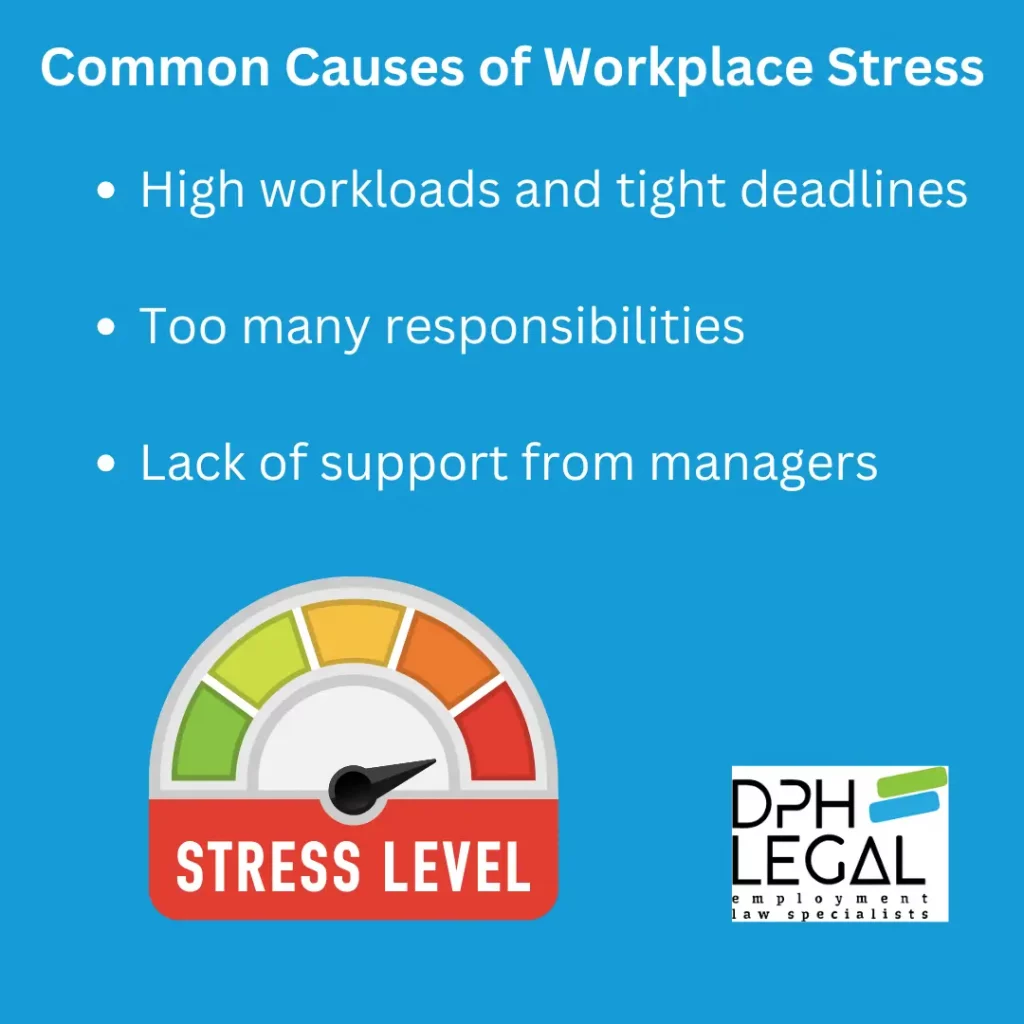

Employers have a legal duty of care to protect employees from excessive work-related stress. Failing to do so can lead to low morale, staff turnover, lost productivity and even legal claims. Employees have work-related stress rights under the Health and Safety at Work Act 1974, which requires businesses to take reasonable steps to reduce stress risks.
Work-Related Stress Rights: Key Statistics from 2023/24
- Rising cases: In 2023/24, around 776,000 workers reported work-related stress, depression, or anxiety, with a rate of 2,290 cases per 100,000 workers. This shows a significant increase from previous years.
- Impact on productivity: Mental health issues resulted in the loss of 16.4 million working days, with each affected worker taking an average of 21.1 days off. This highlights the serious effect of workplace stress on businesses and the economy.
- High-Risk Sector: The public administration, education and health sectors reported the highest rates of work-related mental health issues.
- Stress Among Professionals: Workers in professional roles also faced higher levels of stress, depression and anxiety. This suggests that job complexity, responsibility and workplace culture significantly impact mental well-being.
Common Causes of Workplace Stress

The main triggers for work-related stress include:
- High workloads and tight deadlines
- Too many responsibilities
- Lack of support from managers
Wider Implications of Work-Related Stress
The increase in work-related mental health issues highlights problems in workplace management and culture. The HSE’s (Health and Safety Executive) findings stress the need to prioritise employee well-being and work-related stress rights. Doling so will help to reduce absenteeism, improve retention and create a healthier work environment.
Employer Responsibilities
The HSE stresses that employers must act to address this issue. Suggested actions include:
- Workload management: Ensuring employees have manageable workloads and fair deadlines, preventing excessive stress. Such stress could lead to breaches of work-related stress rights.
- Training managers: Helping managers spot stress early and offer support.
- Creating supportive environments: Encouraging talks about mental health and providing resources like employee assistance programs (EAPs).
Protecting Employee Well-Being and Legal Compliance
Neglecting workplace stress doesn’t just harm employees. It leads to low morale, lost productivity and legal risks. With work-related stress rights gaining more attention, businesses must take proactive steps to create a supportive environment.
The rise in work-related stress in the UK signals an urgent need for change. Employers who act now will not only protect their workforce but also strengthen their business.
Take action today to ensure compliance and foster a healthier workplace. Contact us for expert guidance.
